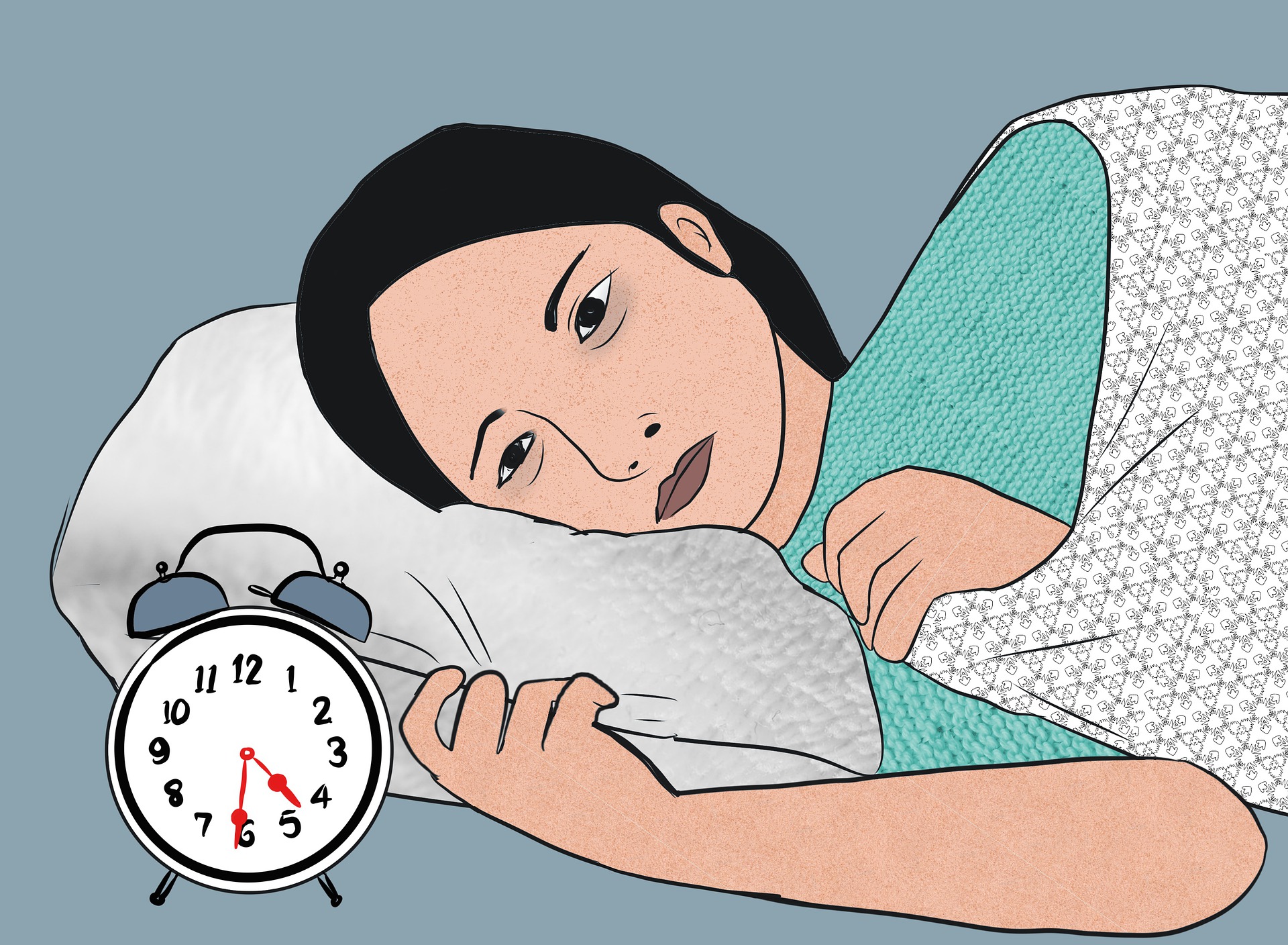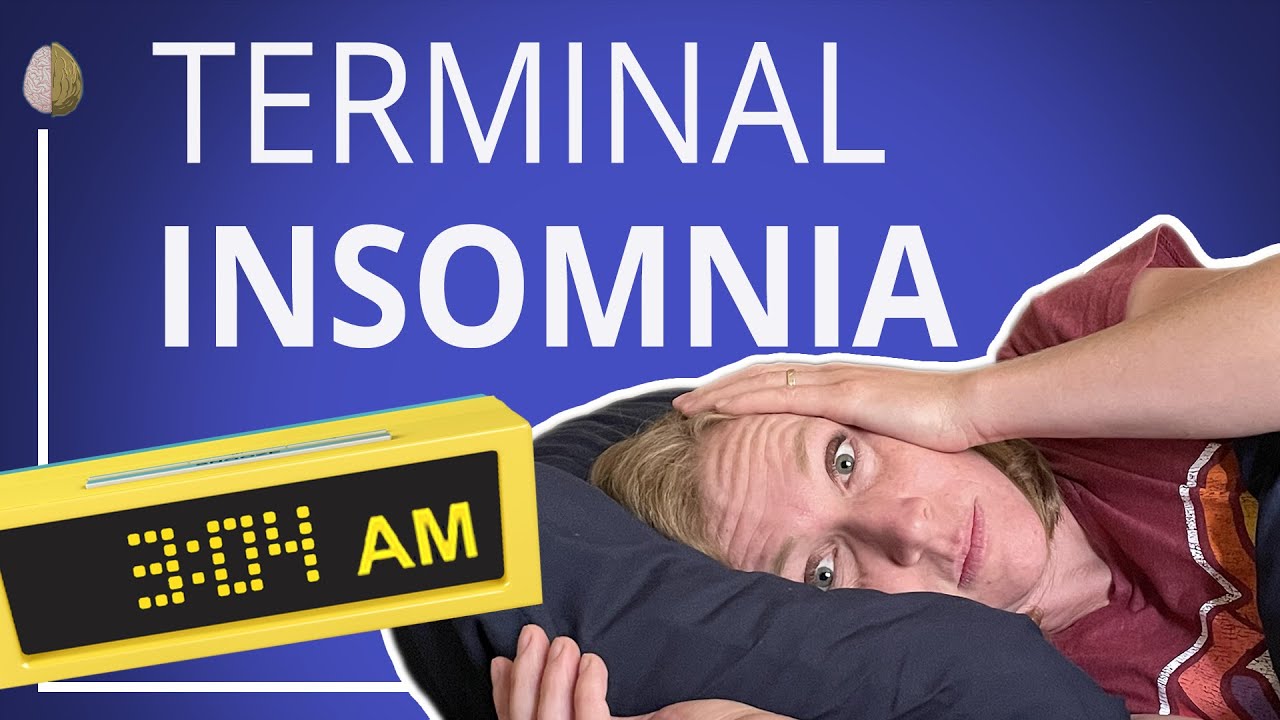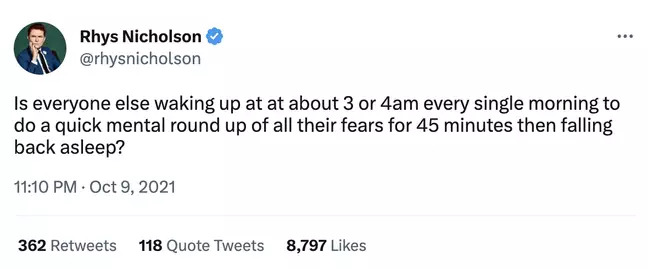How Fears And Failures Cause 3am Worry And Disrupt Your Sleep
Get to know how fears and failures cause 3am worry and disrupt your sleep. When it comes to sleepless nights, we've all experienced endless stirring and groggy mornings. Many of us have also reported intense worry over certain fears and failures in our lives, particularly in the early hours of the morning. But why does this happen?
Author:Raven NoirReviewer:Xander OddityMar 17, 202329 Shares608 Views

Get to knowhow fears and failures cause 3am worry and disrupt your sleep. When it comes to sleepless nights, we've all experienced endless stirring and groggy mornings.
Many of us have also reported intense worry over certain fears and failures in our lives, particularly in the early hours of the morning. But why does this happen?
Why You Wake Up at 3 am - The Science Behind Perpetual Anxiety
An expert has provided an explanation for the perpetual anxiety that haunts us in the early hours of the morning, putting an end to our confusion.
It's unpleasant to feel like we've just dozed off only to be suddenly awakened at 3 am by a deluge of anxious thoughts, including minor fears, perceived failures, or a compilation of cringe-worthy moments.
Many people have taken to social media in an attempt to decipher the origin of these strange 3 am thoughts and why they appear at that time.
In response to comedian Rhys Nicholson's query about waking up every morning at 3 or 4 am to mentally go through all their fears for 45 minutes before falling back asleep, a psychology expert with knowledge in mood, sleep, and the circadian system has finally clarified why this occurs.
According to Greg Murray, a psychology researcher with expertise in mood, sleep, and the circadian system, our neurobiology "reaches a turning point around 3 or 4 am."
This time of the night is characterized by a rise in core body temperature, a reduction in sleep drive, melatonin secretion, and an increase in levels of the stress hormone, cortisol, as our body "prepares to launch us into the day."
Murray explains that "around this time in the sleep cycle, we're at our lowest ebb physically and cognitively," and we lack social connections and other coping skills to deal with our worries.
As a result, we tend to catastrophize, exaggerating our difficulties and believing we are in a worse situation than we really are.

How to Stop Waking Up in the Middle of the Night- 6 Ways to Beat Insomnia Without Medication
Moreover, the expert highlights that trying to solve problems or worrying at 3 am is counterproductive. Instead, Murray suggests using coping techniques such as bringing attention to your senses, meditation and avoiding catastrophic thinking during the day.
It's essential to note that if you're experiencing distressing thoughts and feelings, there are support services available. The Campaign Against Living Miserably (CALM) offers confidential support and advice, and their national helpline is open from 5 pm to midnight, 365 days a year.
Conclusion
In conclusion, while it's common to experience anxiety in the early hours of the morning, understanding the science behind it can help us find ways to cope and improve our overall mental well-being.

Raven Noir
Author
Raven Noir is a captivating and enigmatic news reporter who unravels mysteries with a relentless pursuit of truth. Possessing an insatiable curiosity and an astute mind, Raven delves into the depths of complex stories, unearthing secrets that lie beneath the surface. With a masterful grasp of deduction and observation, Raven stands as a beacon of fearless investigation.
In the realm of journalism, Raven is known for his enigmatic presence, drawing people in with an aura of intrigue. Driven by an unwavering passion for unveiling the truth, Raven Noir continues to shed light on the darkest corners of society. Through captivating storytelling and unwavering determination, he challenges conventions and uncovers enigmatic secrets that lie just beyond the surface.

Xander Oddity
Reviewer
Xander Oddity, an eccentric and intrepid news reporter, is a master of unearthing the strange and bizarre. With an insatiable curiosity for the unconventional, Xander ventures into the depths of the unknown, fearlessly pursuing stories that defy conventional explanation. Armed with a vast reservoir of knowledge and experience in the realm of conspiracies, Xander is a seasoned investigator of the extraordinary.
Throughout his illustrious career, Xander has built a reputation for delving into the shadows of secrecy and unraveling the enigmatic. With an unyielding determination and an unwavering belief in the power of the bizarre, Xander strives to shed light on the unexplained and challenge the boundaries of conventional wisdom. In his pursuit of the truth, Xander continues to inspire others to question the world around them and embrace the unexpected.
Latest Articles
Popular Articles
